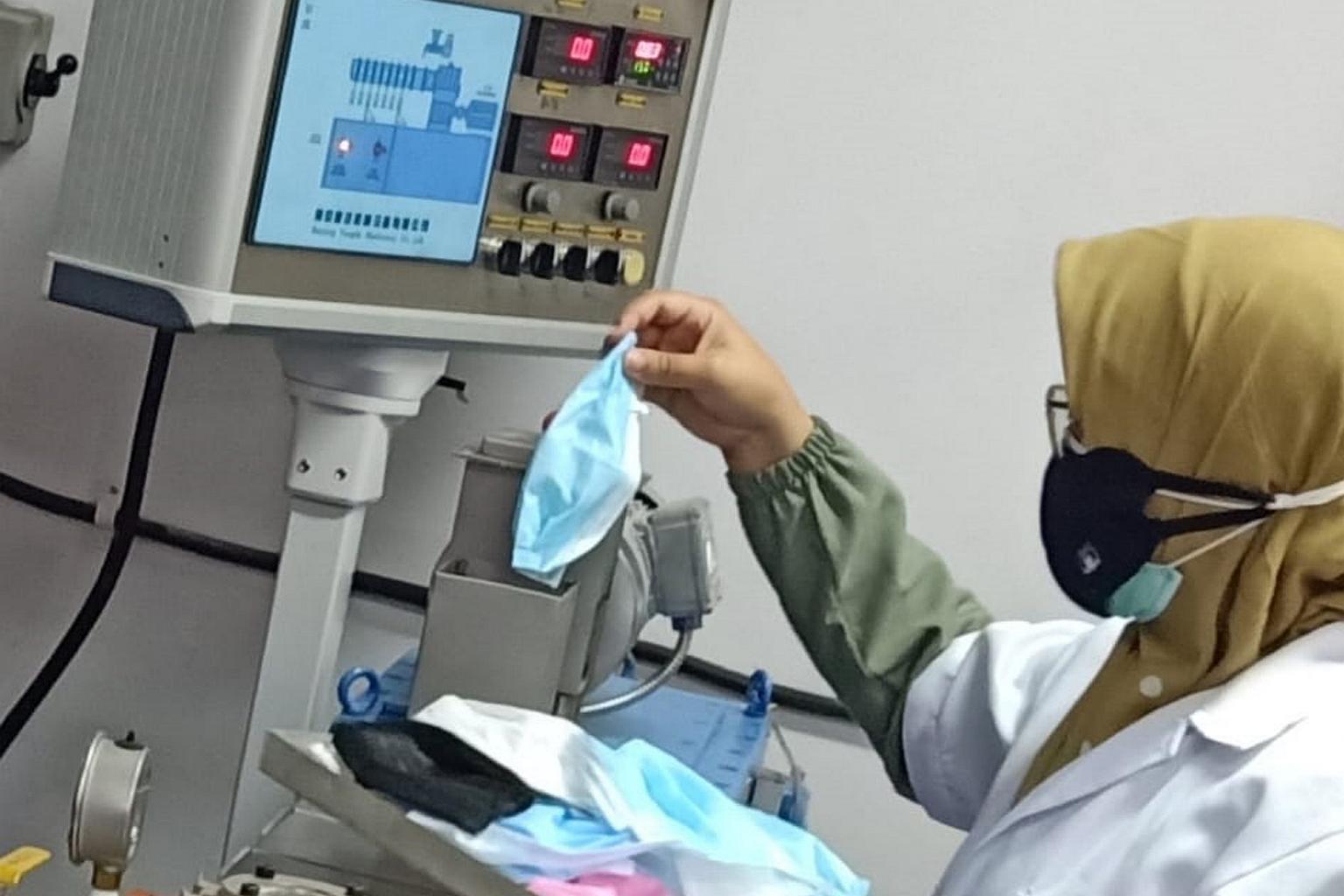Indonesian researchers work on recycling mountain of discarded disposable masks
Sign up now: Get insights on Asia's fast-moving developments

Disposable masks contain polypropylene, a type of widely used plastic such as in mineral water bottles.
PHOTO: COURTESY OF DR AKBAR HANIF DAWAM ABDULLAH
Follow topic:
JAKARTA - Concerned by the mountain of discarded disposable masks, Indonesian researchers are now looking into recycling them.
A team at the Indonesian Institute of Sciences (LIPI) is experimenting with turning them into plastic pellets for use eventually as pails, dustbins and hydroponic pots.
Disposable masks contain polypropylene, a type of plastic that is also used in mineral water bottles, said team leader Dr Akbar Hanif Dawam Abdullah.
His team is working to recover the plastic by first dousing the masks in natrium hypochlorite, commonly used for bleach, and then drying them in the sun before feeding them into an extruder machine which is used in manufacturing to create long, uniform objects. In the final process, a palletiser cuts then into small granules.
Dr Akbar said the method used by his team could reduce the amount of medical waste ending up in landfills.
"If we throw the masks improperly, it's similar to dumping plastic. They cannot be decomposed by micro-organisms on the soil," he told The Straits Times. "Masks not only carry viruses, but also pollute the environment."
Dr Akbar noted that small and medium-sized recyclers would benefit from the plastic pellets made from the discarded masks.
"If at least 50 million Indonesians wear disposable masks each day, there will be 100 tonnes of mask waste daily. What happens if (that accumulates) in a month, a year?" he said, basing the estimate on the fact that a mask without a nose wire and an ear loop weighed 2g.
Indonesia's Environment and Forestry Ministry has estimated that medical waste, including masks, has increased between 30 per cent and 50 per cent during the pandemic. Covid-19 has killed 39,983 people in the country and infected 1.48 million as of Wednesday (Mar 24).
A survey by LIPI's Research Centre for Oceanography, for instance, found that masks and other healthcare garbage made up 16 per cent of the total floating in the Cilincing and Marunda river estuaries in Jakarta Bay in March and April last year.
Bandung-based plastic recycler Jaja, 50, who, like many Indonesians, goes by one name, will be among those to tap into LIPI's experiment, describing the plastic pellets produced by the research team as "good raw material" to produce various products such as hydroponic pots, flower pots and clothes hangers.
"Polypropylene is tough but elastic. Pellets are much better for recycling than used plastic products," he told The Straits Times.
Mr Jaja, who said his company could produce 5,000 hydroponic pots and 2,000 clothes hangers in a day, has thus far relied on used plastic products like pails and toys.
Indonesian Plastic Recycling Association (Adupi) secretary-general Wahyudi Sulistya also welcomed LIPI's innovation, but noted that to adopt it on an industrial scale would require better waste management to ensure sustainable mask supply.
"Medical waste like masks must be separated from the non-medical waste at the household level," he said.
Mr Wahyudi, whose company converts low-value and residual waste including masks into plastic briquettes, added that the government should play a key role in improving Indonesia's poor waste management.
But the Environment and Forestry Ministry's waste management director, Mr Novrizal Tahar, said that the government at the moment was still focusing on how to prevent masks and other Covid-19-generated medical waste from becoming a source of infections.

